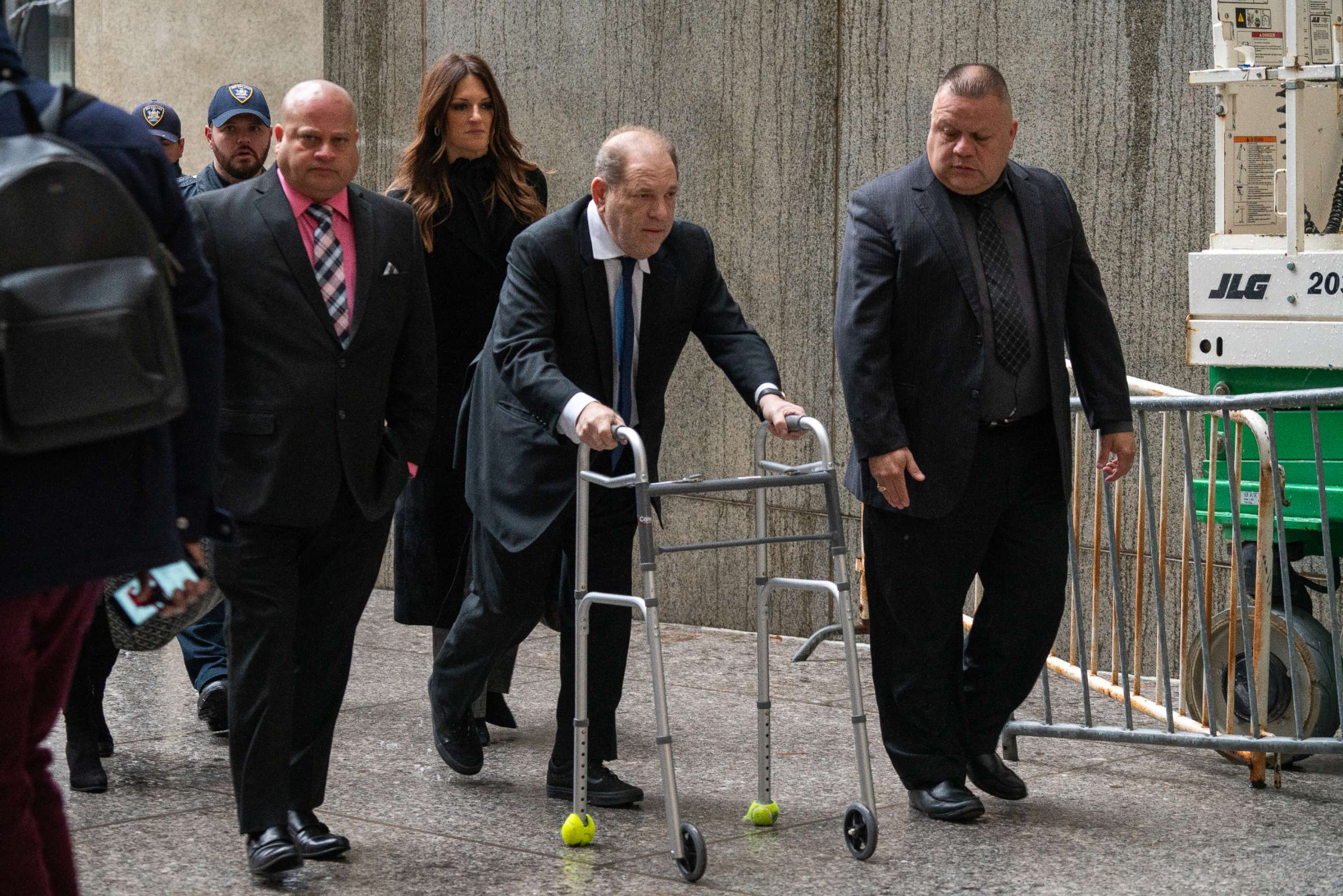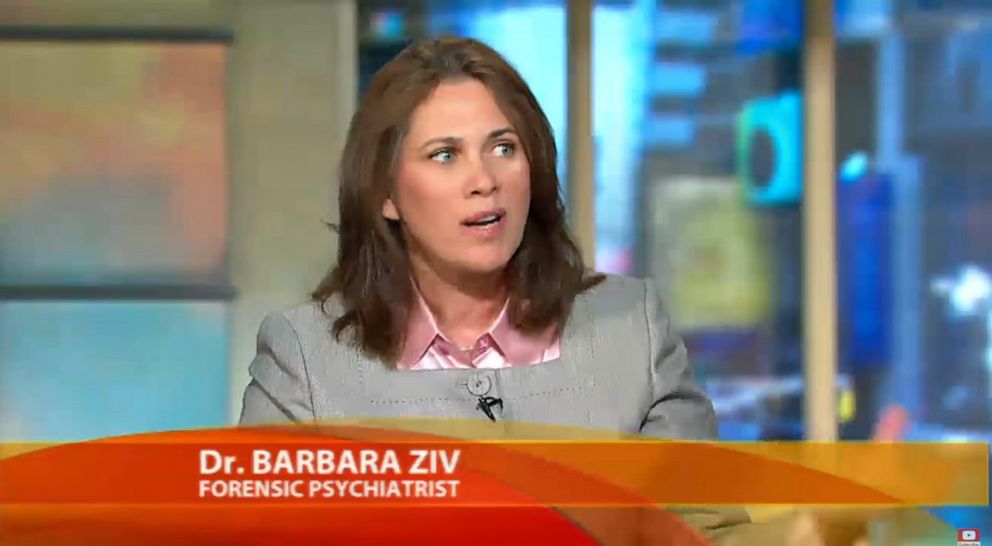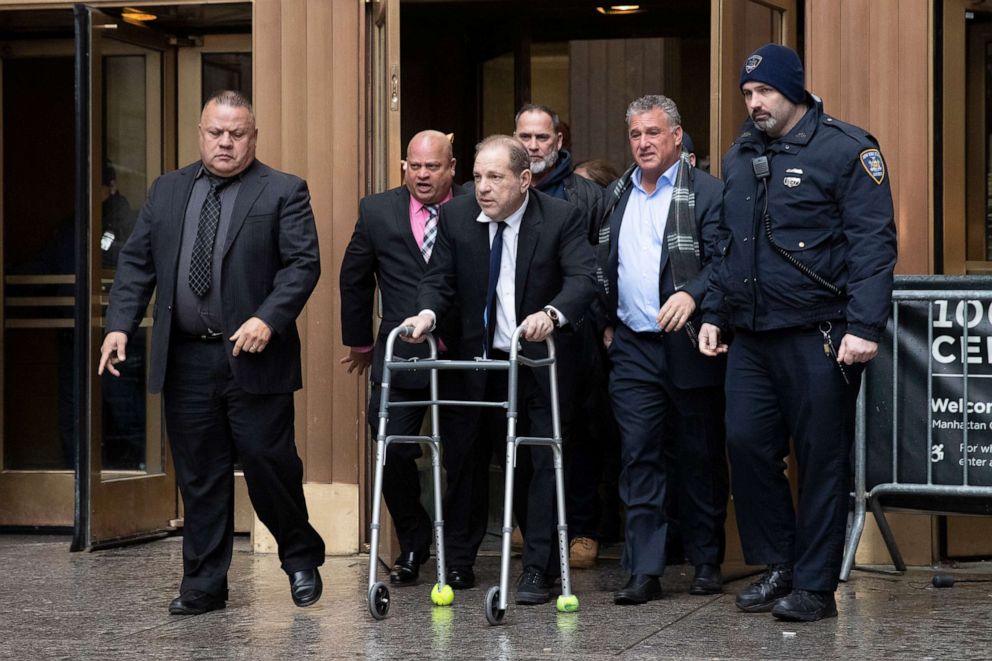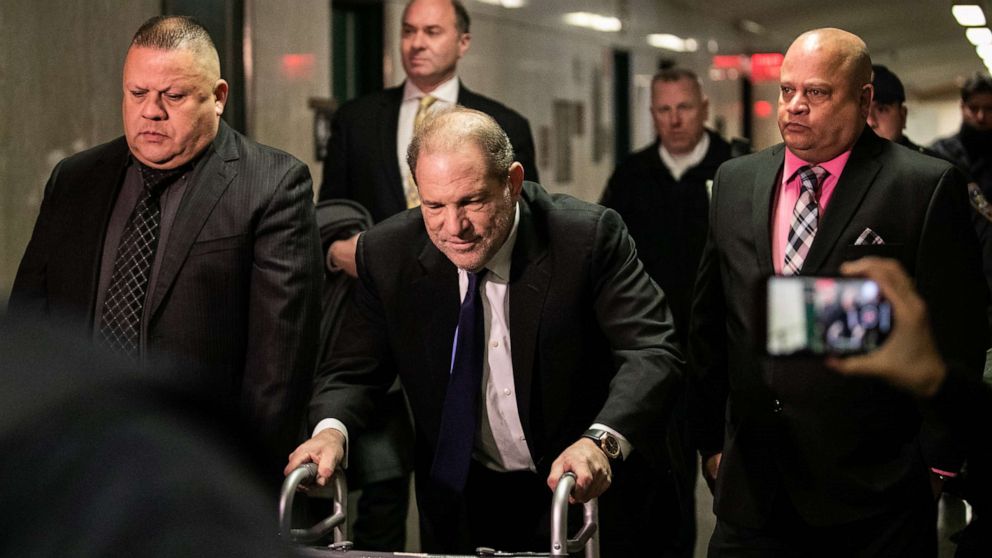Weinstein trial spotlights the use of 'prior bad acts' witnesses
Six women are expected to testify that Harvey Weinstein sexually assaulted them at the Hollywood movie producer’s New York City trial, but he is only charged with assaulting two of them.
Similarly, six women took the witness stand last year in a Pennsylvania courtroom to accuse Bill Cosby of drugging and sexually assaulting them, though he was charged with and convicted of attacking just one -- former Temple University employee Andrea Constand.
Experts in sexual assault and victims' advocates say that the use of so-called “prior bad acts” witnesses – women with credible sexual assault claims against a defendant which fall outside the statute of limitations for prosecution – are an increasingly vital tool for prosecutors at a time when the #MeToo movement is drawing forth long-delayed reports of sex abuse.
“They are 100% important, crucial and necessary to provide to the jury that the defendant knew what he was doing, that this was not an accident,” said Kristen Gibbons Feden, one of a trio of Pennsylvania prosecutors who won convictions against Cosby last year.
Yet critics contend these witnesses can serve to tilt the case unfairly against the defendant and subvert the spirit of the law.
Since in many instances the alleged attacks weren’t reported to police or doctors at the time, physical evidence typically associated with sex assaults is often absent – which can turn conflicting testimony into “he said, she said” sagas, and force jurors to choose who to believe rather than relying on forensic evidence.
This in turn prompts defense attorneys to try and impeach the accuser’s credibility altogether, instead of simply challenging the witness’s account.
“When you look at Andrea Constand, she had all kinds of credibility problems,” University of Colorado law professor and former defense attorney Aya Gruber told ABC News. “Even some of those prior bad acts witnesses -- they were not altogether great witnesses individually.”
“But when you start adding them all up, jurors start saying, ‘wait a second: they may all have individual issues, but what are the chances they would all come forward” and lie, Gruber said.
““You’re not supposed to do this. You’re not supposed to say, ‘Well, if I had to find each of these beyond a reasonable doubt, I wouldn’t, but putting them altogether? Eh. Sure.’ That’s exactly what’s not supposed to happen.”

It’s a fraught decision for any judge – who must weigh the value to the jury of hearing additional evidence from other accusers with similar accounts, versus the potential prejudicial cumulative effect such new witnesses could have on the defendant.
These are really thorny questions about the definition of rape.
In Cosby’s first trial, the judge allowed one prior bad acts witness to support Constand’s claim with her own account. The jury deadlocked, and a mistrial was declared.
In Cosby’s retrial, the same judge allowed five prior bad acts witnesses, and a jury returned guilty verdicts on all counts in just over 12 hours. The ruling has withstood two appellate reviews.
(In a post-verdict statement, the Cosby retrial jurors were explicit about their deliberative process. "Simply put, we were asked to assess the credibility of Ms. Constand's account ... and each one of us found her credible and compelling.")
Judges on the hot seat
Sex assault victim advocates and researchers have long argued that gender-based violence victims should not be expected to behave the way most crime victims do — by, for example, reporting it immediately to the police.
Despite indications of a rise in sex crimes reporting in recent years, rape and sexual assault remain among the most underreported of all crimes. Less than a quarter of all sexual assaults in the U.S. are reported, according to the National Sexual Violence Resource Center.
It is hurdles like these that prosecutors are seeking to overcome through the use of prior bad acts witnesses.
"Even with the #MeToo movement, you have a lot of different people with misconceptions about sex crimes, such as delayed disclosure .... not immediately going to the police, having a piecemeal disclosure,” said Gibbons Feden, who has moved into private practice. “And those are misconceptions."
You have a lot of different people with misconceptions about sex crimes.
"Individuals like to put themselves into the shoes of a victim or survivor -- and for people who don’t know many victims or survivors and can’t really empathize, or put themselves in that person’s shoes, they think to themselves, 'Well, if that were me I would immediately disclose to someone, I would go to the police, I would have such a crazy reaction,’" she said. "And that’s not the typical response."
‘Leveling the playing field’
Another key tactic New York prosecutors seem to be pulling from the Cosby trial playbook is the use of expert prosecution witness, Dr. Barbara Ziv – a forensic psychiatrist who studies the behavior of sexual assault victims.
Ziv testified at the Cosby trial that “the vast majority of victims of sexual assault do not report to authorities,” and that sexual assault reporting can be delayed “from days to weeks to months to years.”

She testified to how common counterintuitive behavior is in victims of sexual violence, and how they rarely act the way you would think they would.
“Experts who testify about victim behavior are so important because they are leveling the playing field,” said Jennifer Long, executive director of AEquitas, a non-profit legal organization that trains district attorneys in the effective prosecution of sex crimes cases. “They are basically trying to undo years of both public and prevalent myths about victims of sexual assault and how they’re supposed to behave.”
Gruber applauded the push to educate jurors on the realities of sexual trauma -- but believes that the Weinstein case is going to raise some complex questions about the nature of consent and coercion.
Weinstein defense attorneys have argued that any sexual encounters between Weinstein and his accusers were consensual. They have submitted email correspondence to the court between Weinstein and the two complaining witnesses they say demonstrates that both women subsequently sought his help in getting jobs. The defense contends that the alleged 2013 rape victim maintained a consensual sexual relationship with Weinstein for years afterwards.
In a response letter filed with the court, Assistant District Attorney Kevin Wilson countered, "That the defendant has a misguided and antiquated view of how a rape victim should react after having been assaulted does not change this reality.”
‘Thorny questions’
All the women testifying against Weinstein are expected to come under withering cross-examination at trial, just as those that testified against Cosby did last year.
Gruber expects the Weinstein prosecution witness cross-examinations to be even more devastating.

“At least with Cosby, if somebody is passed out and you’re having sex with them, that’s rape,” said Gruber.
“What’s not clear here is, what are the levels at which you’re negotiating things where – because of power differentials – the encounter becomes nonconsensual?” she said. “So, the experts are going to be really important in this case.”
“What is on trial in Weinstein is ‘what is rape, versus sexual harassment or bad behavior?’ We all can understand that anything [sexual] you do with a child, for instance, is nonconsensual -- but the trouble we get into is these presumptions about being unable to say no, unable to bargain, unable to get away.”
“Do all these apply to adult women?” she wondered. “Are we supposed to assume that an adult woman is just like a child because she wants that job so much? What are the presumptions that flow to women?”
“These are really thorny questions about the definition of rape, so I think we can expect some real gray areas,” she said.




